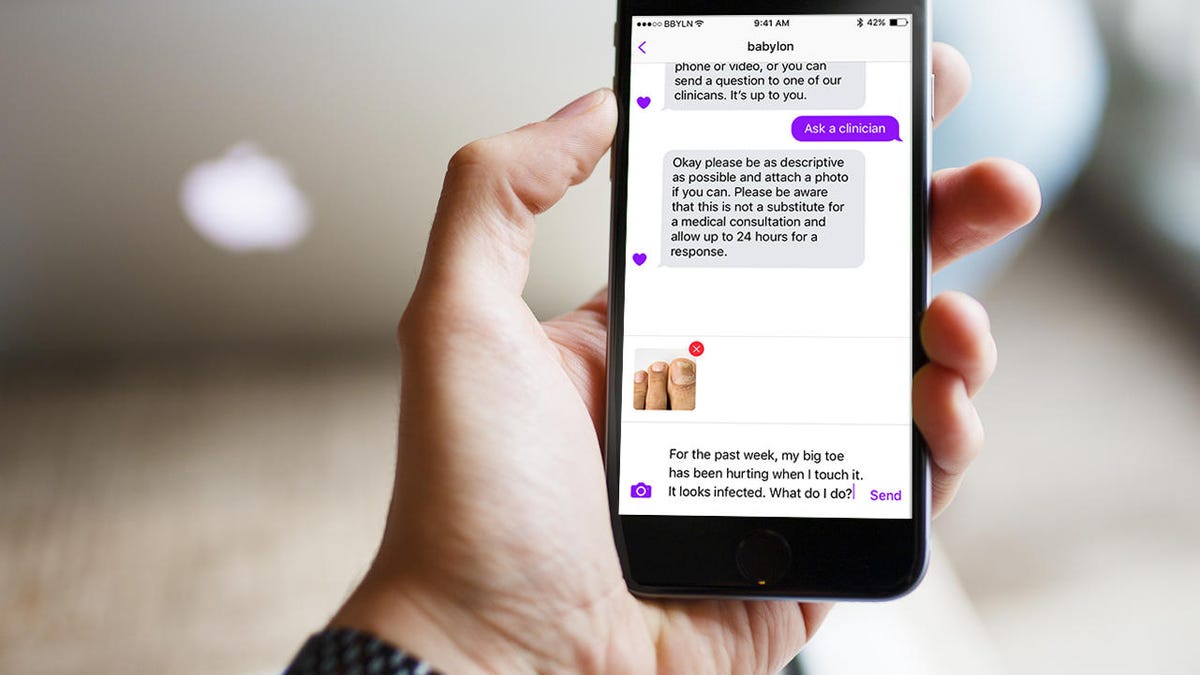AI's health advice is as good as a doctor's, startup says
Babylon Health gave its technology the same test aspiring doctors take in the UK. The company says it passed with flying colors.

AI could be your next doctor.
AI can now offer health advice as good as what you'd get from a human doctor, says a UK-based startup.
Babylon Health said Wednesday that it gave its artificial intelligence technology the same test required of would-be general practitioners in Britain and that the AI performed better than humans.
Babylon presented the AI with a sample set of questions testing diagnostic skills, a key component of the exam. The technology scored 81 percent on the exam on its first try, compared to the average score of 72 percent that human doctors have received over the last five years, the company said. As the AI continues to learn and gather knowledge, Babylon said, it'll score higher in subsequent testing.
The company's team also tested the AI against seven experienced primary care doctors using 100 independently devised symptom sets. Babylon's AI was 80 percent accurate, while the doctors had an accuracy range of 64 percent to 94 percent, the company said. The technology's accuracy jumped to 98 percent when diagnosing the most common conditions in primary care, the company said. Accuracy for experienced clinicians ranged from 52 percent to 99 percent.
This part of the work was done in collaboration with the Royal College of Physicians and doctors at Stanford University and Yale New Haven Health, a health care system affiliated with Yale University.
Babylon founder and CEO Ali Parsa said AI could be a valuable tool, given the global shortage of doctors.
"Even in the richest nations, primary care is becoming increasingly unaffordable and inconvenient, often with waiting times that make it not readily accessible," Parsa said in a statement. "AI-augmented health services can reduce the burden on healthcare systems around the world."
AI is also being used in several other areas of medicine. Researchers have experimented with teaching deep learning algorithms to predict heart disease by examining eye scans. And some hospitals in the US are helping patients by placing AI-equipped smart speakers in hospital rooms. In March, researchers found that machine learning can classify heart anatomy on an ultrasound scan better than a human. AI is also being used to help emergency call dispatchers in Europe detect heart attack situations.

